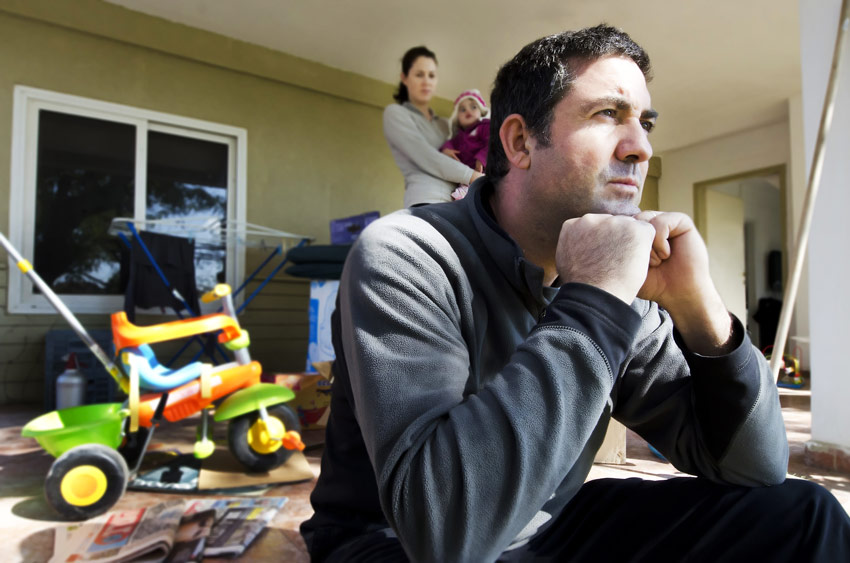Money problems and substance abuse can go hand-in-hand and become a vicious cycle.
When you have financial issues, you can become depressed and look to self-medicate. If you have a substance use problem, it can cause financial issues as you spend more on substances and neglect other bills. To find ways out of a financial crisis or to pay off your already-developed substance habit, you could even turn to working for your supplier as a dealer to finance your addiction.
Regardless of where you are in the cycle, it is a difficult situation to get out of. It’s sometimes overwhelming to know where to start because everything is so entangled. However, recovery from both substance use and financial problems is possible if you are committed to the end result. It won’t be an easy road, but nothing that’s worth it is ever easy!
Money Isn’t Everything, But It Can Feel That Way Sometimes
When you’re just scraping by, or barely able to make ends meet, it’s a huge amount of stress. Whether you’re single, a couple, or a family with children, there are bills that need to be paid and mouths that need to be fed. Being able to meet these needs is imperative.
When you go through a financial crisis, it puts so much strain on not only individuals, but relationships as well. Depression, anger, anxiety—all these emotions can build and cause problems. It could stem from the loss of a job, reduced hours due to slow work or injury, or the addition of a child. Whatever the cause for the financial strain, the results are the same.
How you handle the crisis is the important part. If you choose to self-medicate with drugs or alcohol, know that this will only exacerbate the problem. It may make you feel better in the short-term, but it will cause a deeper financial issue in the long-term. That habit digs into the finances that are already thin.
It is best to find real solutions to your financial problems instead of looking for things to bandage your emotions. If you’re already sliding into the habit of substance use to stop the feelings, get help sooner rather than later. You don’t have to hit rock-bottom to seek recovery!
Killing the Pain—and Killing Your Wallet in the Process
An injury, illness, or surgery can cause financial problems on many levels. There are the medical bills, the prescriptions, and the time off work resulting in lower or missing paychecks. In the case of an injury or surgery, there is also the risk of an addiction to the painkillers prescribed.
This type of prescription drug abuse is an easy trap to fall into. Many physicians in rural areas see patients who are laborers and live paycheck to paycheck. They want to be able to get back to work as soon as possible. Doing that usually involves a prescription that will let them work through the pain.
The problem lies when over-the-counter medications aren’t strong enough. The next step up for most doctors is an opioid painkiller. These are not meant for long-term use. In fact, they are meant for no more than a few days. Studies have shown that taking opioids regularly for longer than three days results in the beginning stages of dependency and can result in withdrawal symptoms if stopped abruptly.
It is a delicate balance when you are sick or injured to handle missing work (and the subsequent low or missing paychecks) and safely recovering without creating a chemical dependency. If you think you may have developed an addiction to your pain medication, don’t hesitate to seek help before it spirals out of control!
Dealing Deeper into Dangerous Waters
For those people living in poverty, anything that can make them money can be enticing. If they have a substance use disorder that takes a large chunk of their income to support, there is an even greater need. Supporting a drug habit can be extremely costly to maintain!
Whether you are using drugs or not, getting into selling them can look like quite the money-making scheme. It could start out innocently enough for the non-addict. You’re at the gym, and overhear a friend or acquaintance mention they hurt something. Maybe you’d had a similar injury and have painkillers or muscle relaxers in your gym bag. You offer to help, but ask to be reimbursed.
This person then mentions to someone else that you have something that helps after they overhear another complaint of pain. You soon realize that you’re making much more selling individual pills than your prescription cost in the first place. That extra cup of coffee you earned on day one turns into a fancy dinner out, then a new TV.
You can try to write off your actions as “helping” someone in need (and making a quick buck in the process), but law enforcement officers don’t see it that way. Lawyer fees, fines, and court costs can do much more damage than the tight budget that got you into selling originally.
It Isn’t That Bad
You may feel like your situation is the end of the world. It isn’t. Whether you’re in a financial pinch that’s leading you to consider self-medicating or you’re deep into a habit that’s eating your paycheck up before you even get it, there is always hope.
No matter what you are going through, drugs and alcohol are not the answer. Addictive substances are not going to make your situation better; they can only make it worse. Using can make your financial, relationship, or work situation fall apart even faster. Additionally, both using and selling could lead to jail time.
Recovery and sobriety are the best ways to enjoy life! St. Gregory Recovery Center offers evidence-based treatment that includes cognitive behavioral therapy, behavior modification training, health and wellness programs, and recovery life coaching. With our help, you can be on your way to a brighter future.











